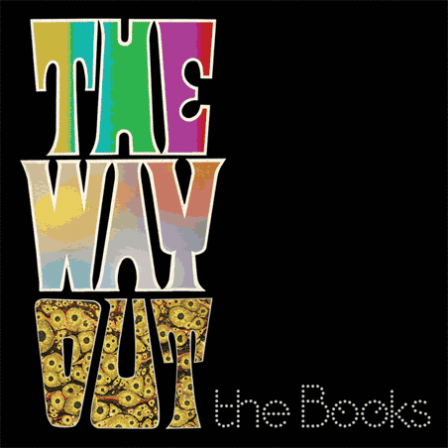In their decade or so as The Books, Nick Zammuto and Paul de Jong have produced a well-defined brand of electroacoustic music that is truly their own, the singular product of two active minds in collaboration. Their work has grown out of an extensive found sound catalog, and explores the relationships between language and sound, speech and music. While the result doesn’t seem informed by any particular genre or movement, they’ve characterized it in the past as “collage music,” a label that neatly captures the curatorial vision of the project. Indeed, Zammuto and de Jong are homegrown archivists, and collection and assemblage are the key components of their process. Their output constitutes a sort of expanding museum, of which every album they create might be considered a new wing, each featuring a selection of audio ephemera housed within the architecture of songform spaces designed to complement, expose, respond to, and emphasize their contents.
Their newest exhibition is called The Way Out, and it’s their first full-length in five years. For the most part, the basic process and formula seem to have remained the same. As on their previous albums, it’s clear that this is a Books production from the outset. Musically, however, much of the record represents a clear departure and features some of their most accessible work to date. There’s still a veritable feast of The Books’ characteristic complexity, but many of the compositions feel tighter, denser, and more direct. Tracks like “I Didn’t Know That,” “Beautiful People,” and “Chain of Missing Links,” among others, are built around more conventional drum sounds and rhythmic patterns that toy with elements of dance, funk, and hip-hop. Three of the album’s 14 tracks even feature straight-up four-on-the-floor beats, and most of the material is dominated by electronic timbres and sounds rather than the acoustic, folkier performances that defined past releases.
The result is a record that is less frequently graceful and sweet, but more varied, playful, and dynamic. Zammuto has written that the working concept for the record was simply that “every track needs to sound like it comes from its own universe,” and that mission is certainly accomplished. There’s a stylistic and emotional diversity on The Way Out that borders on fracture, but the album is drawn together by excellent sequencing, and its best moments achieve an incredible synergy between samples and song as a result of this exploratory attitude.
“A Cold Freezin’ Night” is an absolute gem in that respect. It weds snippets from a Talkboy-recorded game of children’s insult one-upsmanship with a manic, driving musical landscape that’s the most cartoonish thing The Books have ever produced. Both components are hilarious and grotesque, exploring the rich and unsettling relationship between violence and comedy in a compelling way. The song sees the duo reaching out in directions they’ve previously left untouched, and it’s far from the only one on The Way Out where they succeed by doing so.
The expressive attitude and scope of The Books’ music has always been unusual. It relies so heavily on the arrangement of readymade elements that, while it includes an implied self-portraiture, it primarily deflects attention outward. Every one of their albums includes the listener in the process of unlocking the wealth of meaning contained within even the smallest and most unexpected places. The Way Out nobly continues in this tradition, and from its opening spoken phrase, “Hello, and welcome to a new beginning,” the record is a joy — rich with humor, sorrow, ecstasy, horror, and humanity. By the time it comes to a close, The Books have taken us on a journey through space and time, and it’s hard not to feel full, invigorated by a unique sort of listening experience that’s perhaps best described by The Way Out’s closing words: “And you’re becoming the world and everyone in it.”
More about: The Books




